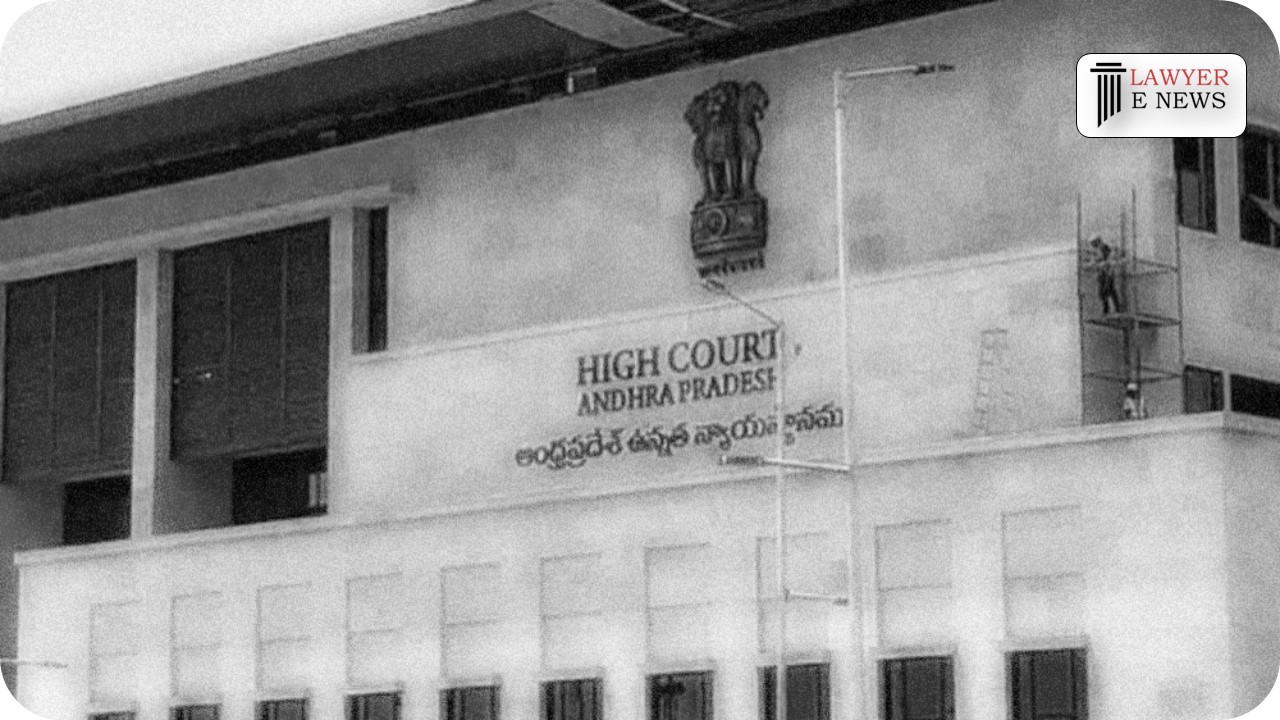-
by Admin
15 February 2026 5:35 AM



The High Court of Andhra Pradesh has dismissed a writ petition filed by Ambati Rambabu, a YSR Congress Party candidate, challenging the election process in the 2024 General Elections. The court, comprising Justices Subba Reddy Satti and Venkata Jyothirmai Pratapa, underscored the non-maintainability of such petitions under Article 329(b) of the Indian Constitution.
In a significant ruling, the High Court of Andhra Pradesh has rejected a writ petition filed by Ambati Rambabu, which alleged electoral offences and sought fresh polling in specific stations. The court emphasized that election disputes must be addressed through election petitions as mandated by Article 329(b) of the Constitution, and not through writ petitions under Article 226.
Ambati Rambabu, contesting as an MLA candidate from the 98-Sattenapalli Assembly Constituency for the YSR Congress Party, alleged that electoral offences occurred on polling day in several stations, including collusion between election staff and personnel from the Telugu Desam Party (TDP). He sought fresh polling in the affected stations, citing irregularities that he claimed were captured on web cameras. Despite filing representations to the District Election Officer and the Chief Election Officer, Rambabu contended that no corrective action was taken, prompting his writ petition.
Jurisdiction and Maintainability: The bench meticulously examined the constitutional and statutory framework governing election disputes. It reiterated the Supreme Court’s position that Article 329(b) serves as a “Great Wall of China” preventing judicial interference in election matters during the process.
Addressing Allegations of Electoral Offences: Rambabu’s allegations included collusion between election staff and TDP personnel, leading to irregularities in polling stations. However, the court noted that these allegations, even if true, fall within the purview of election petitions and not writ jurisdiction.
Interpretation of Article 329(b): The court reaffirmed that the appropriate recourse for election disputes is through an election petition post-election, ensuring that the election process remains unimpeded. Citing precedents like K. Ratna Prabha v. Election Commission of India and Mohinder Singh Gill v. Chief Election Commissioner, the bench highlighted that such disputes should not be entertained during the election process.
Binding Nature of Election Commission Directives: The court addressed the petitioner’s reliance on Election Commission directives, clarifying that while these directives bind election officers, their violation does not invalidate election results. Remedies for such violations lie in election petitions, as supported by Lakshmi Charan Sen v. A.K.M. Hassan Uzzaman.
Justice Subba Reddy Satti remarked, “The constitutional bar under Article 329(b) prevails over the powers of the High Court under Article 226, ensuring that election processes are not interrupted by judicial intervention.”
The High Court’s dismissal of Ambati Rambabu’s petition reinforces the judiciary’s stance on non-interference in election processes during their progression. By directing the petitioner to seek redress through an election petition, the judgment upholds the constitutional mandate, preserving the integrity and continuity of the electoral process.
This decision is expected to fortify the legal framework governing election disputes, emphasizing the prescribed channels for addressing electoral grievances.
Date of Decision: 23rd May 2024
Ambati Rambabu v. Election Commission of India and Others
